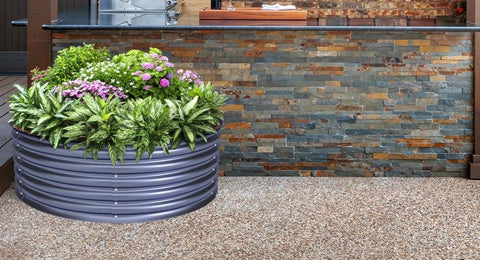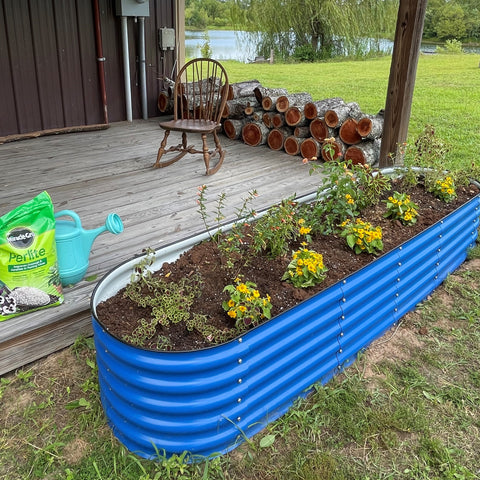Knowledge from Olle Garden Bed: When Should Winter Sowing Begin
Want to jump in the garden season? Winter sowing may suit you! This seed propagation method allows your plant to grow several months before the seeds in the soil begin to grow. Also, it's never too early to start thinking about your garden. The following content also has some reference value for raised garden beds.
Many gardeners understand that waiting until spring or summer will lead to poor plant development or quality. This is why winter planting can help you stay ahead of the game by planting gardens in winter. But when should you start planting in winter?

If you are a gardener, now is the time to start thinking about winter sowing! Winter sowing is an economical and simple way to start your garden in early spring. By planting in winter, you can save some hard work and money.
When it comes to winter sowing, timing is the key! To ensure a successful start, the best time to start winter sowing in the Northern Hemisphere is from December to January. This time is ideal because the temperature is low enough that your seeds will not germinate prematurely. In this way, you can plant all your favorite vegetables, perennials and annuals without worrying about their premature germination.
What choice do you have?
You can plant many seeds in winter so that you can be one step ahead in spring. Green beans, kale, radish, lettuce and broccoli are good choices. Now is a good time to take the lead in the garden!
For perennials, try everything from bee balm and cream to pinecone and daifen. They need cold stratification as part of their life cycle, so winter sowing is your best choice.
If you want to add some color to the spring bed, why not try annual plants such as goldfish, violet, morning glory or pansy?
No matter what you choose to plant in this winter, you will surely have a beautiful garden in spring!
How to sow in winter
Winter sowing is not only a simple and interesting way to start the garden season, but also a good way to try new things and do outdoor activities! All you need is some containers (milk cans work well, so do soda bottles), potted soil, and of course, seeds!
First, you need to prepare the container. Clean them thoroughly with soapy water; This will help prevent any fungal or bacterial infections that may harm the plant. You also need to remove the top of the container (but keep it handy) and make a drain hole at the bottom.
Now you can first fill the container with 3 to 4 inches of soil and water it well. Then insert the seed you choose. Don't forget that you need to keep the soil moist throughout the germination process.
Once the container is full and the seeds are stuffed, add a label so you don't forget what is planted in each container.
Place containers outdoors, underground or on deck. Just make sure you select an area that doesn't get too much sunlight during the day. A place facing east or north is perfect. It will keep the container of your choice cool in the warm months and protected from the cold wind at night. Place the cover on the top and note if the temperature drops sharply. Remember to check your plants occasionally and water them if necessary. In the spring, they will be ready for transplantation!
So try it this winter. With a little creativity and a little luck, you may have one of the richest gardens in the block!

Benefits of winter sowing
Winter sowing is a good way to start the garden for the coming season! You can not only save the cost of expensive growth lights and heating pads, but also have many other advantages in winter sowing.
First, you can watch the plants sprout immediately after the weather warms up. By planting in winter, you don't have to worry about waiting weeks or months to sprout - they'll be ready once spring arrives. In addition, you don't have to worry about fighting the summer heat when sowing.
Planting in winter also gives your plants time to take root and build up before warm weather arrives, ensuring a beautiful and productive garden in spring. In addition, because most pests are dormant in cold months, you don't have to worry about them eating your hard work.
Don't wait! Now comes the opportunity!
Winter sowing is a good way to get your garden started! Start planning now so that you can take advantage of colder temperatures - which can have a significant impact on a successful growing season.
